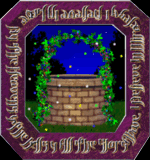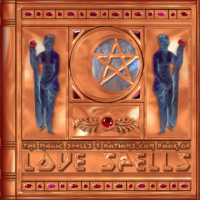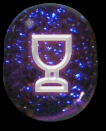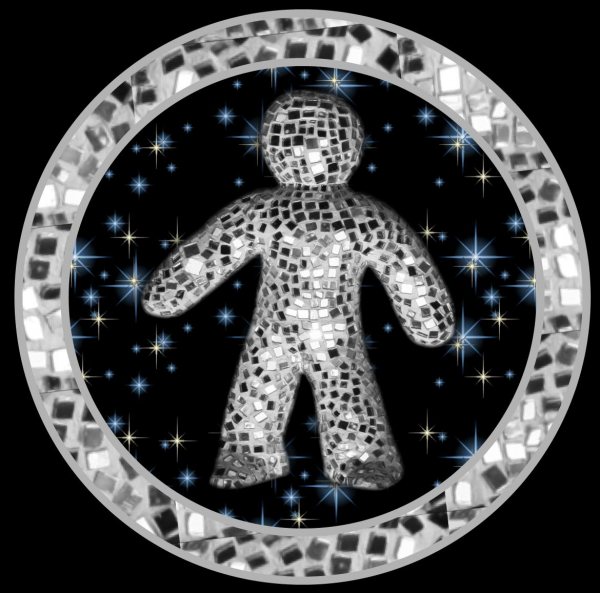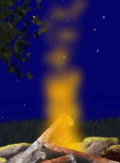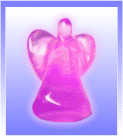Wormwood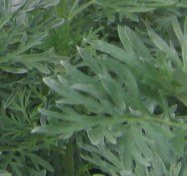
The Wormwood herb was formerly thought to possess the power of dispelling demons, and was thus associated with the ceremonials of St. John's Eve, owning the name, on the Continent, of St. John's Herb, or St. John's Girdle.
Added Mar 5, 2011
| 7,224 Reads
The common Wormwood (Artemisia absinthium) has been partly considered here together with Mugwort, to which it is closely allied. It is a Composite herb of frequent growth on waste ground, being a bushy plant with silky stems, and collections of numerous small heads of dull yellow flowers. The name Wormwood is from wehren, to keep off--mought, a maggot or moth; and absinthium, from-a-negative--psinthos, delight, in allusion to the very bitter taste. The whole plant is of an aromatic smell and bitter flavour. The flowers, when dried and powdered, destroy worms more effectually than worm seed, whilst the leaves resist putrefaction and help to make capital antiseptic fomentations. Wormwood tea, or the powdered herb in small doses, mixed in a little soup, will serve to relieve bilious melancholia, and will help to disperse the yellow hue of jaundice from the skin. The Wormwood herb was formerly thought to possess the power of dispelling demons, and was thus associated with the ceremonials of St. John's Eve, owning the name, on the Continent, of St. John's Herb, or St. John's Girdle. Both it, and the Mugwort were dedicated to Diana: and Venus gave thereof (Ambrose) to AEneas. It bears the provincial name "old woman." The smell of common Wormwood is very refreshing, and its reviving qualities in heated Courts are almost equal to a change of air. Dioscorides declared it a preventive of intoxication, and a remedy for the ill-effects of any such excess; for which reason the poculum absinthiacum was a favourite beverage. Gerard says: "The plant voideth away the worms, not only taken inwardly, but applied outwardly; it withstandeth all putrefactions, and is good against the stinking breath." It keepeth garments also from the moths--A tineis tutam reddit quá conditur arcam (Macer); and Dr. W. Bulleyne says "it keepeth clothes from moths and wormes." This is the great preventive used by cloth manufacturers. "Furthermore," adds Gerard, "taken in wine it is good against the biting of the shrew mouse, and of the sea dragon. It may be applied against the Squincie, or inflammation of the throat, with honey and water: likewise, after the same manner, to dim eyes, and mattery ears." The characteristic odour of the plant is due to a volatile oil which consists mainly of absinthol; and the intensely bitter taste resides in "absinthin." The plant also contains tannin, resin, starch, succinic, malic, and acetic acids, with nitrate of potash, and other salts. In some districts it is popularly called "green ginger." Wormwood is of benefit for strengthless flatulent indigestion. An infusion may be made of an ounce of the dried plant to a pint of boiling water, and given in doses of from one to two tablespoonfuls three times during the day. This infusion with a few drops of the essential oil will prevent the hair from falling off. Absinthe, a liqueur concocted from Wormwood, is used largely in France, and the medical verdict pronounced there about its effects shows that it exercises through the pneumogastric nerve a painful sensation, which has been taken for that of extreme hunger. This feeling goes off quickly if a little alcohol is given, though it is aggravated by coffee, whilst an excessive use of absinthe from day to day is not slow in producing serious symptoms: the stomach ceases to perform its duty, there is an irritative reaction in the brain, and the effects of blind drunkenness come on after each debauch. The French Military call absinthe un perroquet. The daily taking even for a short while only of a watery infusion of Wormwood shows its bad effects by a general languor, with obscurities of the sight, giddiness, want of appetite, and painful indigestion. When indulged-in as an appetiser by connoisseurs, absinthe, the "fairy with the green eyes," is modified by admixture with anisette, noted as an "agreeable and bronchitis-palliating" liqueur. As a result of his experiments on animals, Dr. Maignan has come to the conclusion that absinthe (Wormwood) determines tremblings, dulness of thought, and epileptiform convulsions,--symptoms which alcohol alone will not produce. Hence it may be inferred that absinthe contains really a narcotic poison which should prevent its being employed as a liqueur, or as a homely medicament, to any excess. Dogs are given to eat the Wormwood as a remedy for their ailments. Its medicinal and curative uses have been already partly discussed, together with those of Mugwort.
Added Mar 5, 2011
| 7,224 Reads
Share The Magic ...
The GoE MONEY!!! Course - A Course In Real MONEY MAGIC!
|

